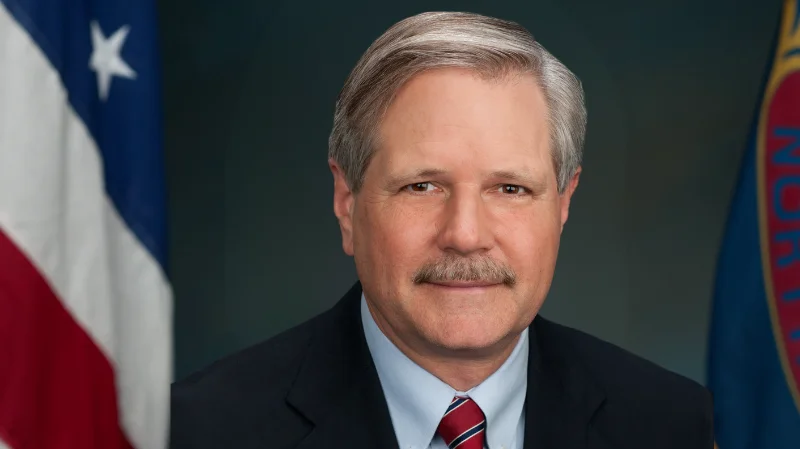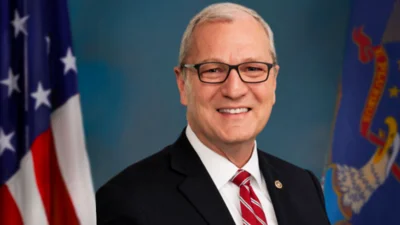Senator John Hoeven, U.S. Senator of North Dakota | Senator John Hoeven Official website
Senator John Hoeven, U.S. Senator of North Dakota | Senator John Hoeven Official website
During a recent address on the floor of the U.S. Senate, Senator John Hoeven emphasized the critical role of border security in curbing the flow of fentanyl from Mexico and Canada into the United States. He highlighted former President Trump's enforcement of measures that discouraged illegal crossings and empowered U.S. border personnel.
Senator Hoeven's remarks are part of his ongoing crusade against illegal immigration, advocating policies aimed at strengthening border security to protect American communities from criminal organizations smuggling fentanyl and other illicit drugs. Hoeven supported the U.S. Senate's recent passage of the Halt All Lethal Trafficking (HALT) Fentanyl Act. This legislation seeks to permanently classify fentanyl-related substances as Schedule I drugs and impose mandatory minimum sentences for trafficking these substances.
"The result of our country returning to common-sense border security policies can be seen in the numbers," Hoeven asserted. In March, Border Patrol agents reported encountering 7,181 illegal immigrants attempting to cross the southern border, significantly down from 137,473 in March of the previous year under President Biden—a decrease Hoeven attributes to a shift in policies.
Senator Hoeven cited President Trump’s early executive orders addressing the border crisis as pivotal in reversing policies that enabled the catch and release of individuals involved in transnational criminal activities. "By declaring an emergency at the border, DHS, DOD, and DOJ were able to take a whole of government approach and began working together to identify the criminals that were illegally operating these networks within our country," he noted.
Critiquing what he termed as detrimental "Democrat open border policies," Hoeven warned of their impact on every state, labeling them "border states." He urged for bipartisan collaboration to secure U.S. borders and tackle the issue of illicit trafficking, saying, "CBP officers, Border Patrol agents, state, local, and tribal law enforcement are stepping up to take on the fentanyl crisis at our borders."
In addition to U.S. efforts, Mexico has agreed to deploy 10,000 National Guard troops to fortify its northern border. Similarly, Canada has announced several initiatives, including appointing a fentanyl czar, classifying Mexican cartels as terrorist groups, and launching a Canada-U.S. Joint Strike Force to combat organized crime and related issues. Canada has also significantly increased law enforcement personnel at its borders.



 Alerts Sign-up
Alerts Sign-up